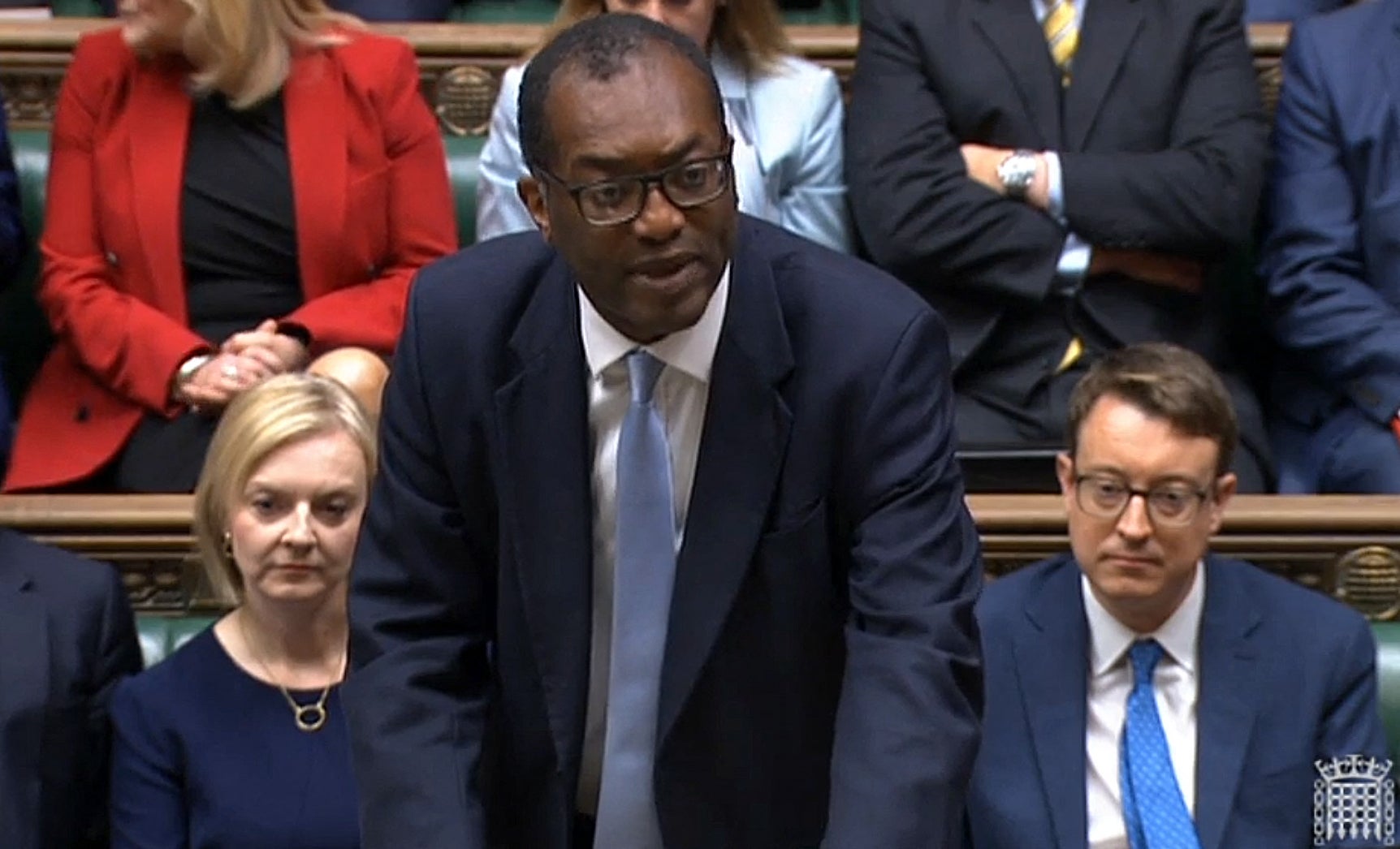The Tories know they may have just lost the next election
You could tell from the faces of Tory MPs that many of them think Kwasi Kwarteng seems set on offending undecided voters, writes John Rentoul


The glum faces and feeble cheers on the benches behind Kwasi Kwarteng told us what many Conservative MPs think of the chancellor’s extraordinary gamble in today’s mini-Budget. They thought that perhaps Kwarteng had some clever announcement up his sleeve; that he might offset the electoral damage done by uncapping bankers’ bonuses with a tax cut that would benefit people on low to middle incomes more than the rich.
They couldn’t believe their ears when the chancellor tried not only to explain why the cap on City bonuses was a bad idea and boasted, “We’re going to get rid of it,” but went on to announce the abolition of the top rate of income tax, the 45 per cent rate on incomes above £150,000 a year. Even if they agreed with the top-rate tax cut in principle, they cringed at the thought that now, with inflation imposing hardship on their poorer constituents and food banks facing unprecedented demand, might be the time to do it.
It was no use Kwarteng pointing out that the highest rate of income tax at 40 per cent was the same as that which prevailed throughout the Labour government. Those were good economic times – until 2008, and a higher rate was brought in at the end of that time to help to share the burden of responding to the financial crisis.
It was no use older Tory MPs recalling the glory days of Nigel Lawson’s time as chancellor, when he cut the highest rate from 60 per cent to 40 per cent in 1988. Those, too, were good economic times, although they were already turning bad and those tax cuts help to overheat the economy and send it into recession.
These times are quite different. Lawson’s tax cuts were paid for by the proceeds of growth; these cuts, larger than expected, are being paid for by borrowing. No wonder some Tory MPs felt ideologically confused. They thought that any prudent chancellor would make two gestures at least: first towards “levelling up”, and second towards trying to balance the government’s books.
But Kwarteng seemed determined not even to pretend that he cared about such things. He seemed to think One Nation Toryism was a recent invention of Rishi Sunak’s. He was so retro that he repeatedly referred to the opposition as “socialists”.
Every single measure either benefited the better off and not the poor, or if it benefited people on low to middle incomes, that was trumped by greater benefits for those on higher incomes.
Even the freeze on energy bills gives more (borrowed) money to the better off, because they tend to live in bigger houses and use more gas and electricity. The reversal of the national insurance rise is worth trivial sums to employees on or below average earnings – although they benefit indirectly from a cut in the employer rate – but larger amounts higher up the scale. The same applies to the cut in the basic rate of income tax next year.
That is not how the Conservatives have tried to win elections since Thatcher’s time. You could see the perplexity written on Tory MPs’ faces. “Tax cuts for the rich at a time of hardship for the many” is not a slogan on which they expected to fight the next election.
Not that you would guess from Labour’s front bench that this was the moment they began to believe that they really might be in government in two years’ time. Rachel Reeves, the shadow chancellor, didn’t mention the top-rate tax cut except to make a general point about measures to reward those who are already well off. But her sober demeanour should have been all the more worrying for doubtful Tories.
It was left to Labour backbenchers to condemn “taking from the poor to give to the rich”; Reeves just criticised borrowing so much and questioned whether there is any evidence to support the government’s belief that tax cuts lead to growth.
To keep up to speed with all the latest opinions and comment sign up to our free weekly Voices Dispatches newsletter by clicking here
She doesn’t have to pose as a class warrior to ask the question that was asked of me by a former government economist the other day: “What is their economic model?”
This is a government of the same party that thought debt at 70 per cent of national income was a threat to Britain’s survival in 2010, when interest rates were low and falling. Now it has decided that a huge economic stimulus is the right policy when debt is 100 per cent, inflation unmoored and interest rates rising.
Not only that, but more of the extra borrowing is going into the pockets of the rich than into those of people on low to middle incomes who are more numerous and more likely to be swing voters.
It is almost as if Liz Truss and Kwasi Kwarteng have a pact to lose the election, but to do so knowing that they have done it their way.






Join our commenting forum
Join thought-provoking conversations, follow other Independent readers and see their replies
Comments